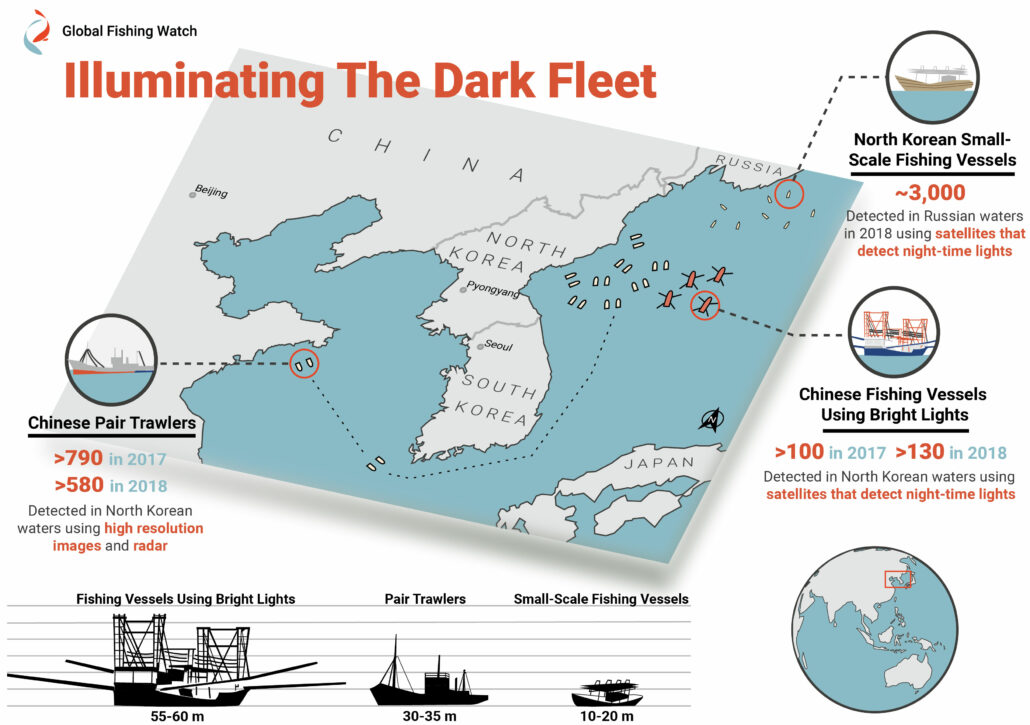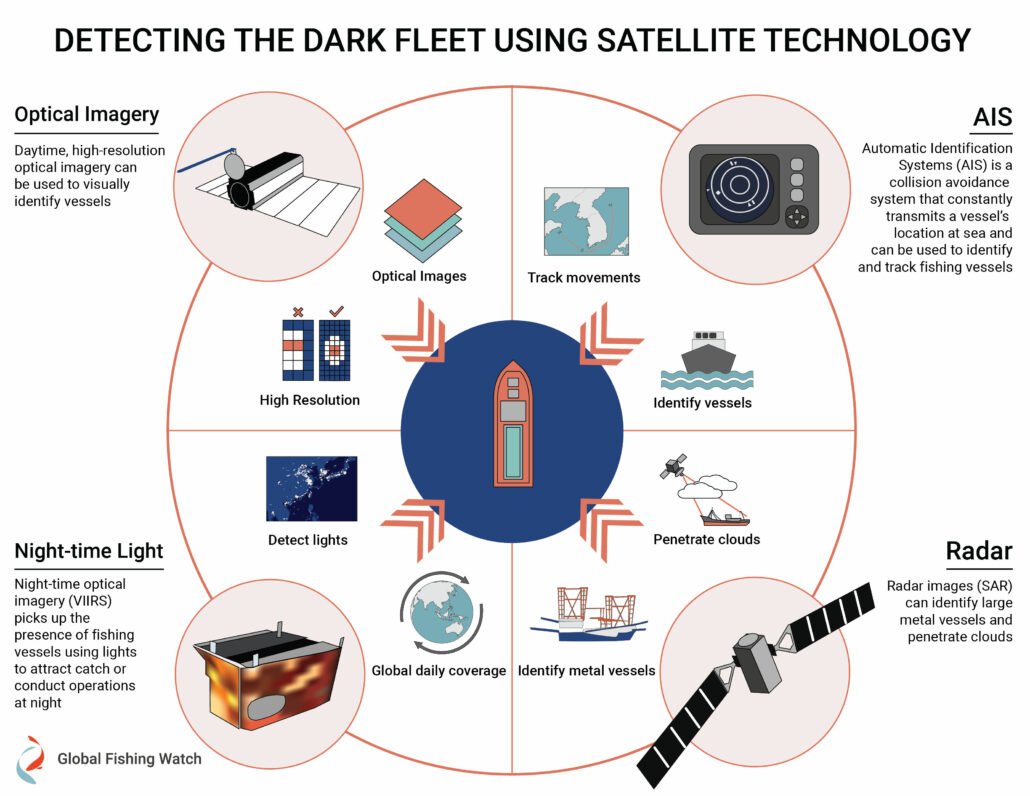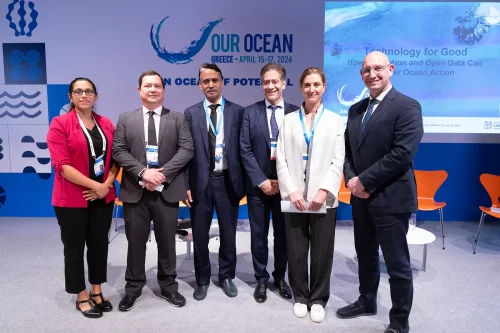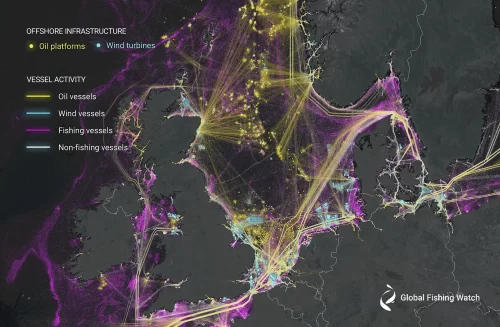On 22 July 2020, the journal, Science Advances published our ground-breaking study, Illuminating Dark Fishing Fleets in North Korea, revealing the largest known case of illegal fishing perpetrated by vessels originating from one country operating in another nation’s waters.
Communications materials
Press release: Report Exposes Rampant Illegal Fishing in North Korean Waters
Paper: Illuminating Dark Fishing Fleets in North Korea
Visuals: graphics, video clips and photos
Video: Using Satellite Technology to Detect the Dark Fleet
Video: Rampant Illegal Fishing Exposed in North Korean Waters
Additional, follow-up analysis:
2019 analysis: Global Fishing Watch 2019 analysis
Blog on 2019-20 analysis: New Technology Unveils Massive Illegal Fishing by Dark Fleets in North Korea, What Next?
Key findings of the study in Science Advances include;
- More than 900 vessels, originating from China, detected in 2017, and 700 in 2018, fishing in North Korean waters, likely in violation of United Nations (UN) sanctions
- The detected vessels likely caught almost as much Pacific flying squid as Japan and South Korea combined — more than 160,000 metric tons worth over US $440 million in 2017-2018.

The paper also sheds light on why North Korean “ghost boats” are washing ashore along Japan’s coast with crew missing, or a grim cargo of human remains. The study detected about 3,000 North Korean vessels fishing illegally in Russian waters in 2018. Competition from trawlers originating from China is likely forcing North Korean fishers to venture further from home in ill-equipped boats, in some cases with tragic consequences.
The researchers used an unprecedented synthesis of satellite imagery and machine learning to reveal the dark fleets – vessels that do not publicly broadcast their location or appear in public monitoring systems, operating in some of the world’s most disputed and poorly-monitored waters.

The study, and flow of satellite data, can greatly benefit countries committed to stamping out illegal fishing and enhancing monitoring efforts; and can serve to support nations with limited capacity and resources to control fishing activity in their waters. Satellite technologies, accompanied by local expertise, can reveal the activities of dark fleets, filling a major gap in the management of transboundary fisheries, and identify potential hotspots of illegal, unreported and unregulated (IUU) fishing.
Global Fishing Watch is eager to support governments in filling the gaps in monitoring their vessels and fishing activity in their waters, including dark fleets, and finding innovative and science-based solutions to eliminating IUU fishing and achieving ocean sustainability.

